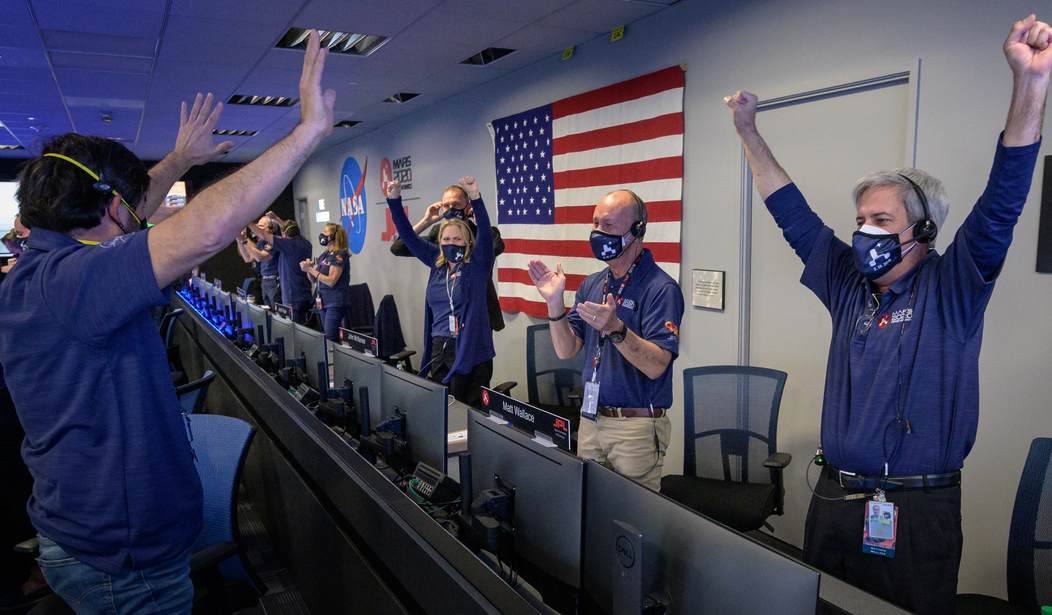Mars and Earth aren’t always the same distance apart. The distance between the two world varies from just under 40 million miles to more than 154 million miles.
The sun, by contrast, is an average of 93 million miles from Earth.
When you launch a thing to Mars from Earth, you want it to transverse the space between when Mars is closest. You have to understand where each planet is, each planet’s velocity, its rotational speed, conditions on the target world, and a host of other facts that are by their nature changing as you go.
Critical race theorists have come up with toxic and downright wacky ideas, but their stupidest and most insane is that math is somehow racist.
Math doesn’t know or care anything about you at all. It’s an exacting thing whether you hate it or love it. Get the math right and make history exploring the cosmos as your Mars rover lands where and when you expect. Get the math just a tiny bit wrong and you’re liable to miss an entire planet.
This Mars rover lands not only where and when it’s supposed to, it lands when Earth is out of its eyeshot from the Martian surface. To phone home, it had to relay its signal through the Mars Reconnaissance Orbiter. Math told flight planners where to expect that to be at the right time, so the rover would be able to land when the orbiter was overhead and could be used as a radio relay platform. You’ve got bullets seeking each other while one of them performs a complex landing on an alien world.
Perseverance is a success all around. This dramatic video shows the rover touching down on the surface of the Red Planet.
The rover also picked up audio — wind — from Mars. NASA released that today.
The amount of planning, engineering, calculation, patience, and, yes, perseverance that go into making this moment a success is mind-blowing. That the team has pulled it off with such apparent ease conceals a vast wealth of knowledge and experience that has led to this moment. It builds on failures as well as successes.
Humans did this. Americans led the way.
Bryan Preston was a producer for NASA’s Hubble Space Telescope. He is the author of Hubble’s Revelations: The Amazing Time Machine and Its Most Important Discoveries. He’s a veteran, author, and Texan.









Join the conversation as a VIP Member